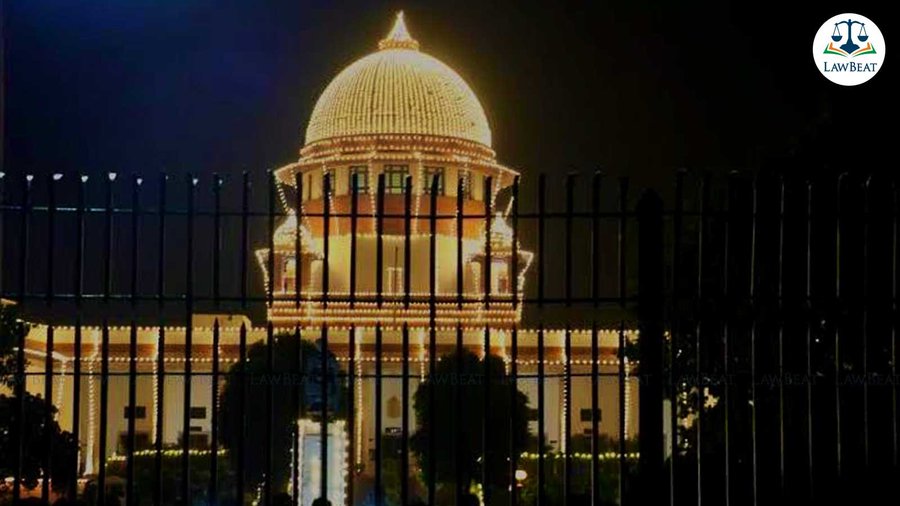SC implores youth to resist and desist substance abuse

Court expressed concern over vulnerable children resorting to drugs as an escape from emotional distress, academic pressures, or peer influence
The Supreme Court recently expressed its earnest disquiet about the proliferation of substance abuse in India and called upon the youth to take charge of their decisional autonomy and firmly resist peer pressure and desist from emulation of certain personalities who may be indulging in drugs.
"The ills of drug abuse seem to be shadowing the length and breadth of our country with the Central and and every State Government fighting against the menace of substance abuse. The debilitating impact of drug trade and drug abuse is an immediate and serious concern for India," a bench of Justices B V Nagarathna and N Kotiswar Singh said.
In its judgment rejecting the cancellation of bail of an accused Ankush Vipan Kapoor and his challenge to the orders to the NIA probe in a drug smuggling case, the bench said it is a need of the times that the end consumers of the illicit drug trade exercise community-friendly decision making and refuse to sustain the bottom-line of drug traffickers.
"The arc and web of drug trade cannot be permitted to corrode the shine of the youth of India!," the bench said.
The court said as the globe grapples with the menace of escalating Substance Use Disorders and an ever accessible drug market, the consequences leave a generational imprint on public health and even national security.
The court highlighted Article 47 of the Constitution makes it a duty of the State to regard the raising of the level of nutrition and the standard of living of its people and the improvement of public health as among its primary duties and in particular the State shall endeavour to bring about prohibition of the consumption except for medicinal purposes of intoxicating drinks and of drugs which are injurious to health.
"The State has a responsibility to address the root causes of this predicament and develop effective intervention strategies to ensure that India’s younger population, which is particularly vulnerable to substance abuse, is protected and saved from such menace. This is particularly because substance abuse is linked to social problems and can contribute to child maltreatment, spousal violence, and even property crime in a family," it said.
The court cited the Ministry of Social Justice and Empowerment’s 2019 Report on ‘Magnitude of Substance Use in India’ which revealed that nearly 2.26 crore people use opioids in India.
It was also borne out that substance use exists in all the population groups; however, adult men bear the brunt of substance use disorders. After alcohol, cannabis and opioids are the next most.commonly used substances in India. About 2.8% of the population (3.1 crore individuals) reported having used cannabis and its products, of which 1.2% (approximately 1.3 crore persons) was illegal cannabis and its products, the court pointed out.
Referring to the role of parents, the bench said, they have a crucial role in the prevention of drug abuse among adolescents. Parental awareness, communication, and support are key in mitigating the risk of drug addiction. The first step in the effective preventive leap should start within the household.
"In our view, the most important yearning of children is love and affection and a sense of security emanating from parents and family. Domestic violence and discord between parents; lack of time being spent by parents with children due to various reasons and compensating the same by pumping pocket money are some of the reasons why young adolescents are being veered towards escapism and substance abuse. Affectionate and friendly conversations between parents and children and a continuous assessment of the direction in which a child is proceeding is a duty which each parent must undertake," the bench said.
The court said no longer should drug abuse be treated as a taboo that parents disengage from.
"Instead, open discussions about drug use and its ill consequences will provide parents and children a safe space and equip children with the knowledge to help themselves out of peer pressure," it said.
Underscoring the role of schools and colleges, the bench said, of equal importance is the need for schools and colleges to aid the government programs in educating students about the perils of drug abuse.
It said they must include prevention of drug abuse in their curriculum, focusing on the physical, emotional, and legal consequences of drug abuse.
"Naturally, all efforts should be backed by scientific evidence and experiential learning. It is an urgent need that the Ministry of Social Justice and Empowerment’s framework of National Action Plan for Drug Demand Reduction and other programs are given a boost and truly imbibed in drug education programs run by schools and colleges in the country," the bench said.
The court also emphasised the role of local communities, NGOs, NALSA and NCPCR and NCB in this regard.
To the youth, the bench implored them to take charge of their decisional autonomy and firmly resist peer pressure and desist from emulation of certain personalities who may be indulging in drugs.
"For youngsters just beginning to explore the world, the consumption of drugs in popular culture has propelled the cultural push towards a dangerous lifestyle, one that incorrigibly applauds drugs use as ‘cool’ and a fashionable display of camaraderie," the bench said.
The court opined it is sad that vulnerable children turn to drugs as an escapism from emotional distress and academic pressures or due to peer pressure.
"The unfortunate reality is that victims of substance abuse are not limited to the unfortunate ones who have fallen prey to it but also include their family and peers. Our approach towards the victims of drug abuse must not be to demonize the victims but to rehabilitate them," it said.
Case Title: Ankush Vipan Kapoor Vs National Investigation Agency
